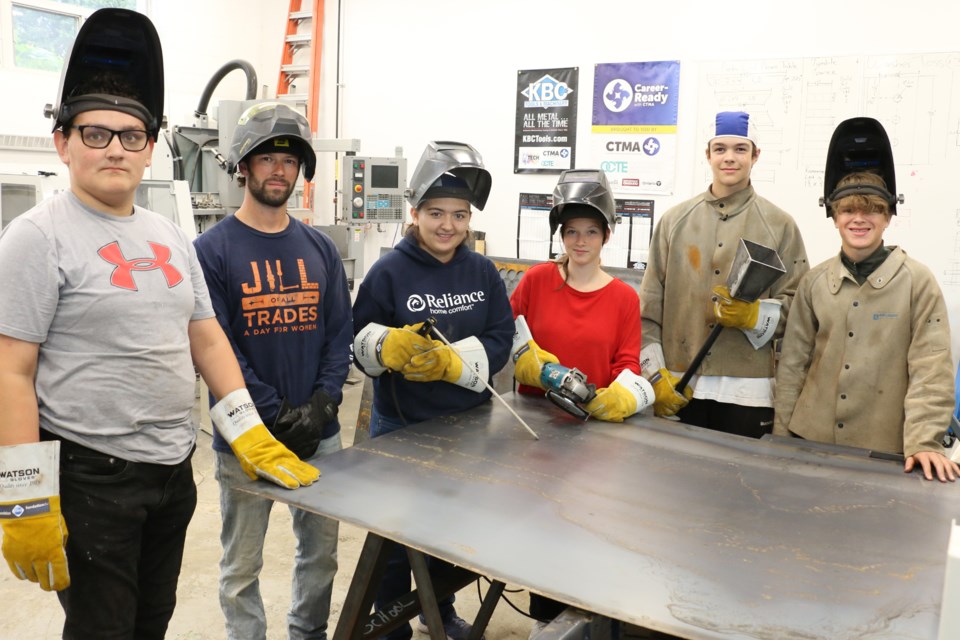When it comes to shortages in the workplace, it is more than the high-profile positions like doctors and nurses that are in big demand.
It is also happening in one of the crucial skilled trades: welding.
Whether it's for mining, manufacturing, construction or any number of heavy industries, there are not enough welders to meet the demand, said Alex Benoit, who used to be a welder in the mining and manufacturing industries in Sudbury.
Benoit, who is now a manufacturing and millwright teacher at Lasalle Secondary School, said that is one of the key reasons the school hosted a week-long welding "camp" to introduce students to the trade and give them hands-on experience.
"We are focused on trying to get more students engaged in the trades, especially welding, where in Sudbury we have a high demand for welders,” said Benoit. “And so we've had a lot of support from different companies, local companies here that are in need of these welders. So they're trying to facilitate camps like this so that we can get more students interested in and hopefully pursue a trade.”
He added that the demand for welders is significant.
"We are absolutely facing a shortage, absolutely,” said Benoit. “The shop owners come in here and just want to talk to the students because they're dying for welders. We have people from Vale come and talk to them. They say I have this many welders right now, I need 20 more. If I can get 20 welders tomorrow, I'll take them. But they can't get them. So we need to train them.”
He said there are still some old attitudes that tradespeople might not earn enough money to support themselves.
"That's one of the stigmas where if you join one of these trades that you're likely not going to be able to afford your own house, or you can't afford your own truck," said Benoit.
"But that's changed because the demand has gone up so much. So you see ironworkers that are making incredible wages around the $250,000 to $300,000 a year mark," said Benoit.
He said the demand for skilled trades is significant and it means people in that sector are big money earners.
"And, actually, school boards are doing a really good job of letting the kids know about that by running camps like this," said Benoit.
Jody Jakubo, the coordinator for co-op and specialist high skills major programs with the Rainbow District School Board, said the idea of holding a skills camp is to let students know about things they might like to pursue as well as things they might not want to take further.
"I always say to students that it's important to know what you don't like, as important as it is know what you do like so that you can really kind of get your feet wet, and try things without a commitment in terms of postsecondary or in terms of a job," said Jakubo.
She said it was encouraging to see some of the young people who had never tried welding before this week step up to see what it was like.
“These students are incredibly engaged,” Jakubo added. “A lot of them have been asking you about the programs that are running here at Lasalle. Because just spending a little bit of time here and seeing what's available is something that they're interested in.”
She added that she expects interest to grow in the fall. That's when Lasalle will be running a special high-skills major program for millwrights. It will be the first of its kind in Ontario and will give students the kind of hands-on experience that will make them make informed career choices.
Len Gillis writes about the mining industry as well as health care for Sudbury.com.




